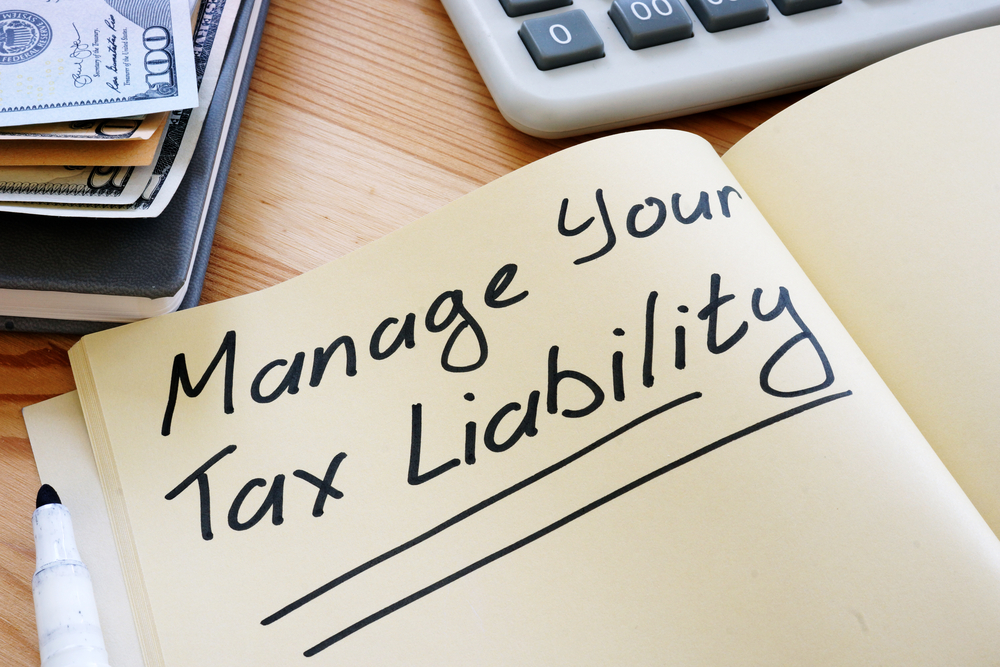Last-Minute Things You Can Do to Reduce Your Tax Liability for 2019
 While your mind may be filled with thoughts of the holiday season right now, December is also the ideal time to start thinking about your taxes for this year. Why should you start thinking about them now instead of waiting until after New Year’s? Well, there are a few things you can still do to reduce your 2019 tax liability, which can help you to save significantly when you file—but you have to do them before the ball drops on December 31st! Here are a few last-minute things you should start working on if you hope to reduce your tax liability.
While your mind may be filled with thoughts of the holiday season right now, December is also the ideal time to start thinking about your taxes for this year. Why should you start thinking about them now instead of waiting until after New Year’s? Well, there are a few things you can still do to reduce your 2019 tax liability, which can help you to save significantly when you file—but you have to do them before the ball drops on December 31st! Here are a few last-minute things you should start working on if you hope to reduce your tax liability.
Charitable Contributions
Many people choose to give to charities during the holiday season. After all, it’s called “the season of giving” for a reason. But if you’re hoping to reduce your tax liability a certain amount (whether to fall into a lower tax bracket or for other reasons), it may be worth taking a second look at how much you’re donating this year.
Charitable contributions to qualifying organizations are completely tax deductible, so you can quickly and easily use these to reduce your tax liability. However, the donations must be made by December 31st if you hope to write them off this year.
Also, keep in mind that it is not only cash contributions that are deductible. If you’re cleaning out your house and getting rid of possessions you no longer use, you may want to consider donating them to an organization like Goodwill or the Salvation Army. You can get a receipt for the donation of your items, and deduct the approximate value of those items. This way, you’re reducing your taxable income without having to lose cash assets.
Be sure to take a look at our last blog for a few things to keep in mind when donating to charities during the holiday season.
Contributing to Retirement Accounts
Contributions to qualifying retirement accounts are tax deductible as well. So, if you’re looking to keep your money while also reducing your taxable income, consider maxing out your IRAs. Luckily, you do have a bit of extra time to make those contributions; you have until April 15, 2020, to make any deposits to your IRA accounts if you hope to deduct them on your 2019 tax return.
Keep in mind that the maximum contribution to an IRA is $5,500 per year for most individuals. However, you can have both a Roth and Traditional IRA, so you can put up to $11,000 into these accounts each year to reduce your taxable income.
Contributions to 401k accounts are also tax deductible. However, you typically have to make those contributions before the end of the tax year in order to deduct them, so don’t expect to have the extra time that IRA contributions give you.
Bunch Your Expenses
With certain tax law changes brought on by the TCJA, more and more taxpayers are looking at bunching their expenses. For example, let’s say that you run a business from home. You typically buy supplies for your business every month. But instead, you can purchase several months’ worth of supplies before the end of the year, increasing your expenses and reducing your taxable income. This strategy works especially well if your itemized deductions are very close to the standard deduction amount for the year, or if you’re just barely above the threshold for a higher tax bracket.
In some cases, you may even be able to consider bunching medical expenses. Only medical expenses exceeding a certain percentage of your income can be deducted. However, if you’ve already surpassed this threshold, and there are medical procedures that you can move up by a month or two, you can increase your expenses for the year and reduce your tax liability.
Of course, you should always get important medical procedures done when your doctor recommends them; however, if it’s possible to move that tonsillectomy up by a week or two to get it in before New Year’s, it can save you on your taxes.
Meet with a CPA
Most of these strategies require forethought and expert planning to ensure you’re making the most of them. That’s why it’s so important to meet with a CPA as soon as possible, so that you can work together to figure out what last-minute deductions you may be able to claim before the year ends. Contact us today to schedule an appointment, and we’ll help you find additional ways in which you may be able to reduce your tax liability.